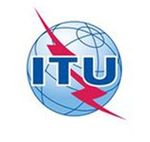Difference between revisions of "ITU-T"
| Line 19: | Line 19: | ||
| linkedin = | | linkedin = | ||
| twitter = ITU_News | | twitter = ITU_News | ||
| − | | keypeople = [[Dr. Hamadoun Touré]], Secretary-General | + | | keypeople = [[Dr. Hamadoun Touré]], Secretary-General <br> [[Malcolm Johnson]], Director-ITU Telecommunication Standardization Bureau |
}} | }} | ||
Revision as of 23:50, 5 January 2012
| Type: | International Organization |
| Industry: | ICT |
| Founded: | 1865 |
| Founder(s): | United Nations |
| Headquarters: | Geneva |
| Country: | Switzerland |
| Website: | www.itu.int |
| Facebook: | ITU |
| Twitter: | |
| Key People | |
| Dr. Hamadoun Touré, Secretary-General Malcolm Johnson, Director-ITU Telecommunication Standardization Bureau | |
ITU-T is the telecommunications standardization sector of the International Telecommunications Union, which is responsible in developing new standards and revising existing standards for the information and communications technology (ICT) industry from core network functionality and broadband to next-generation services such as Internet Protocol Television (IPTV). The standards developed by ITU-T are called "Recommendations" since they are not mandatory unless they are incorporated in the national law of a particular government. Currently, there are 3000 ITU-T Recommendations available.[1]
The work of the the standardization sector in the development of global ICT ensures that developing countries will be given accessibility to adopt international standards to main a fully integrated global communications operations for next generation networks (NGN); build confidence and security in using ICTs; develop early warning systems (emergency communication); reduce the impact of ICT on climate change and learn how to use ICT to lessen its effects. [2]
ITU-T Framework
The ITU-T framework is composed of the following:[3]
- World Telecommunication Standardization Assembly (WTSA)- provides the overall guidelines, structure and policies for ITU-T. It is also responsible in creating study groups, appoint leaders and approve their specific work programs within the next four years.
- Telecommunication Standardization Advisory Group (TSAG)- serves as the advisory body for working groups by guidelines and organizational working procedures in developing standards, resolve coordination problems within the study groups and expand their electronic working methods. TSAG also provides advise to the Director of the Telecommunication Standardization Bureau (TSB), which provides logistical support for the study group.
- Study Groups- are responsible in developing standards in different areas. The study groups within the sector include:
- Study Group 2- In-charge in developing standards for in the operation aspects of telecom management such as services, networks and equipment. The Group was involved in creating the standards for ENUM, an IETF standard protocol used to enter E.164 numbers in the Domain Name System (DNS). Chairman, Ms Marie-Thérèse Alajouanine.
- Study Group 3- Responsible in establishing the standards for tariff and accounting principles in conjunction with the telecommunication economic and policy issues such as recommending the appropriate and reasonable global interconnection rates. Chairman, Mr. Kishik Park
- Study Group 5- Evaluates the effects of ICT to the environment and climate change and provide guidelines in using ICT eco-friendly. Chairman, Mr Ahmed Zeddam
- Study Group 9- Conducts studies in the field of television, sound transmission and integrated broadband cable networks. Chairman, Mr Arthur Webster
- Study Group 11- The group's work is focused on signalling requirements, protocols and test specifications which include defining standards on how to handle data and telephone calls in a network. Chairman, Mr. Wei Feng
- Study Group 12- Develop standards to ensure that Performance, Quality of Service (QoS) and Quality of Experience (QoE) is maintained within the ICT Industry. The group identify new parameters such as packet loss and jitters and identify the impact of communication services.The group recently developed and revised standards in planning and deployment of IP-based networks. Chairman, Mr Charles A. Dvorak
- Study Group 13- Develops standards for Next Generation Networks and Future Networks. Chairman, Mr. Chaesub Lee
- Study Group 15- Creates standards in the field if Optical transport networks and access network infrastructures including broadband internet connections for over 600 million subscribers worldwide. Chairman, Mr. Yoichi Maeda
- Study Group 16- In-charge in developing standards for multi-media coding, systems and applications and responsible in coordinating studies to the different study groups. Chairman, Mr. Yuishi Naito
- Study Group 17- Concentrated in establishing standards to maintain and enhance ICT security. Chairman, Mr. Arkadiy Kramer
- Workshops and Seminars- The sectors organize free and open workshops and seminars for the public provided by experts in the field of ICT.
- Technology Watch- An initiative to evaluate the standardization needs of the ICT industry on new technologies and provide updated reports.

